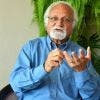
When they voted against the bicephalous power arrangement of the Second Republic project in December 2014, the people of Mauritius did not imagine that the country would be run by a multi-headed government wandering around two centres of power. There is today a problem of political leadership whereby the Prime Minister-in-office contents himself with presiding over the Cabinet while a Prime Minister-in-waiting is managing the government. Now transpose this national duality on a company, and you have a corporate governance issue.
Publicité
As the board of Air Mauritius summarily dismissed its chief executive officer (CEO), the 2016 Nobel Prize in economics was awarded to Oliver Hart and Bengt Holmström, who is hailed the founder of modern principal-agent theory. This relates to a situation in which one party (the “principal”) has to perform some task but must hire another party (the “agent”) to do it. In a corporation, the principal is the shareholder-owner, represented by the board directors, and the agent is the management led by the CEO. The relationships between them are crucial in determining firm performance. The real question of corporate governance is how to get the agent deliver in the best interests of the principal (the agency problem) when the former has both more information and different interests than the latter (the agency costs).
In the first instance, it is the board directors who appoint and discharge the top managers. As owner of public bodies and parastatals, Government should respect this basic principle. In the distant past, Cabinet’s role was limited to choosing board members. Today it also recruits the CEO, as is the case with Air Mauritius. It thus follows that dismissals of CEO are politically loaded. The governance system is fundamentally flawed.
As a political appointee, the CEO tends to bypass the board and report straight to the Prime Minister or to the responsible minister. Once he obtains the minister’s blessing on an important matter, the CEO decides, presents the Chairman with a fait accompli and seeks a covering approval from the board. Corporate governance does not work that way. Being at the top of hierarchy, board directors cannot be used to simply rubber stamp management’s decisions. The ultimate decision-maker is, and should be, the board, which is supreme.
The board has the power to manage the company if it so desires. But as it chooses to delegate operational responsibility to a chief executive, it remains answerable to the shareholders, who retain the ultimate control of productive resources. For this reason alone, a CEO has no prerogative over the board: an executive, as the name suggests, executes the directives, policies and strategies of the board. Any disagreement over them is enough for him to quit.
Of course, it is not the duty of board members to attend to the minor details of the conduct of business, and managers must have the latitude to make day-to-day decisions. However, the hands of management are tied by board policy, and even the CEO cannot have complete free hand. In a state company, government interference complicates matters further and is not conducive to management discipline as it undermines the board’s authority.
A corporate governance principle states that board oversees management. This is because managers may engage in discretionary, opportunistic or self-interested behaviours at the expense of shareholders, even if the ownership is not widely dispersed. An active market for control of corporations can discourage such conducts, but the Mauritian stock market fails to act as a takeover mechanism for replacement of incumbent management. Otherwise, according to economist Fritz Machlup, competition associated with the discipline of profit and loss induces firms to minimise their agency costs and limit managerial discretion. Since Air Mauritius now operates in a competitive market, the board cannot allow too much managerial discretion but must keep managers in check.
Agency problem arises out of information inequality. In big firms, management is better informed than the board but does not necessarily share all the information with the directors. The latter should rather be provided with information on a timely basis, between board meetings, to help the company make informed decisions. There must be constant exchange of information between the CEO and the Chairman through direct communication, not via the company secretary.
Agency costs are due to the separation of the Chairman and CEO positions. This appears to be an effective way to limit the effects of powerful managers and passive owners, who have little incentive to spend resources on monitoring management. But to derive an efficiency gain from the dual function, there must be an independent chairman who acts quickly as and when required.
A split system may, however, impose wide invisible costs and delays on well-functioning businesses. It may reduce the authority of the CEO, foster a risk-averse bias on his part and hinder management’s effectiveness in creating value. The Chairman and the CEO develop a complex relationship that disrupts the firm’s operations. Duelling creates organisational tension and instability, and it causes a costly diversion of attention from priorities.
Instead of having two centres of authority, state-owned enterprises would perform better with a single person as CEO Chairman. In the United States, many companies, namely banks, adopt the structure of Executive Chairman. It is common practice in Mauritius among thriving small and medium enterprises and large family business groups. Public boards too would gain in lodging power, leadership and accountability in a single place.

Notre service WhatsApp. Vous êtes témoins d`un événement d`actualité ou d`une scène insolite? Envoyez-nous vos photos ou vidéos sur le 5 259 82 00 !





















![[Info Soirée] : « Li ti lor caution pou la mor ene madam »](https://defimedia.info/sites/default/files/styles/square_thumbnail/public/thumbnail_020524_0.jpg?itok=d0HLZwg0)